The following is a presentation that Carolyn Cotton gave on May 20, 2018, the Sunday that USG’s Exploring Elderhood group led our Worship Service. The paintings you see below are all created by Carolyn.
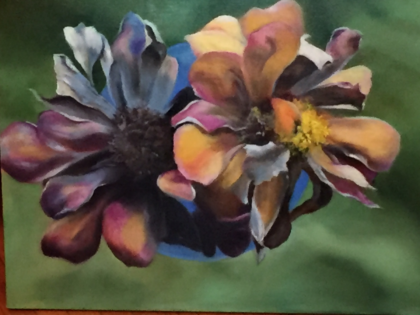
WABI SABI. There is a term you don’t hear every day. Wabi Sabi is the quintessential Japanese aesthetic. The Art of Imperfection. As an artist this concept is very appealing. A few years ago I began painting flowers that were no longer perfectly fresh. This wasn’t a conscious decision. I just thought the aging flowers were more interesting when the petals began to change in shape and color. I admired their distinct beauty. They were more fun to paint.
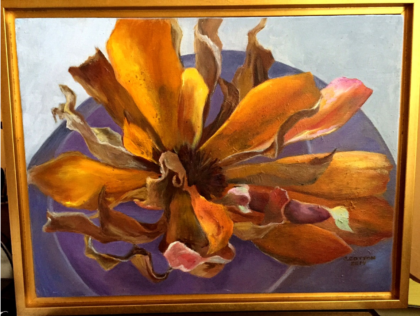
WABI SABI is a concept that can be applied to all of life. “It is the opposite of our sleek, mass produced, technology-saturated culture. It is flea markets, not shopping malls; aged wood, not swank floor coverings; one single morning glory, not a dozen red roses. Wabi Sabi understands the tender raw beauty of a gray December landscape and the aching elegance of an abandoned building. It celebrates cracks and crevices and rot and all the other marks that time and weather and use leave behind.
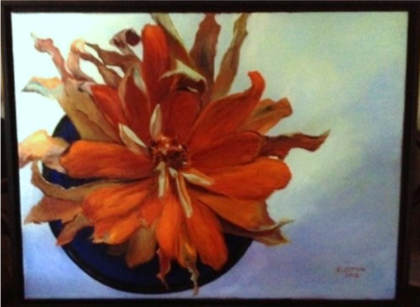
WABI SABI reminds us that we are all transient beings on the planet. We are part of nature’s cycle of growth, decay and erosion as embodied in frayed edges, rust and liver spots.”*
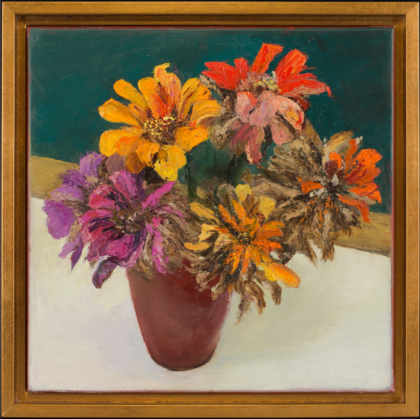
WABI SABI asks us to abandon the mantras of perfection. Instead “I am perfectly imperfect like everyone else.” Abandoning the need for perfection can open our imaginations into new avenues of creativity. In the season finale of the comedy show “The Big Bang Theory,” Amy & Sheldon are getting married. They get into a conversation about an imperfectly tied bowtie. Amy tells Sheldon she likes the bowtie a little crooked. Sheldon goes off into a frenzy, developing new scientific theories based on the idea of asymmetry.
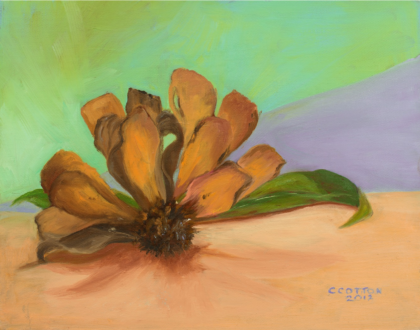
WABI SABI can in its fullest expression be a way of life. At the very least it is a particular kind of beauty.

*Wabi-Sabi, The Art of Imperfection” by Robyn Griggs Lawrence from Natural Home, Sept.-Oct. 2001

